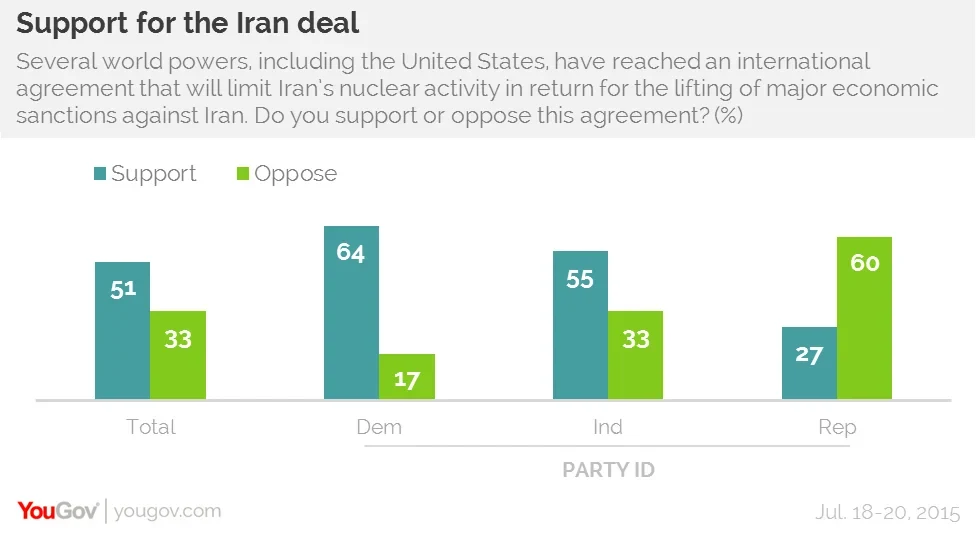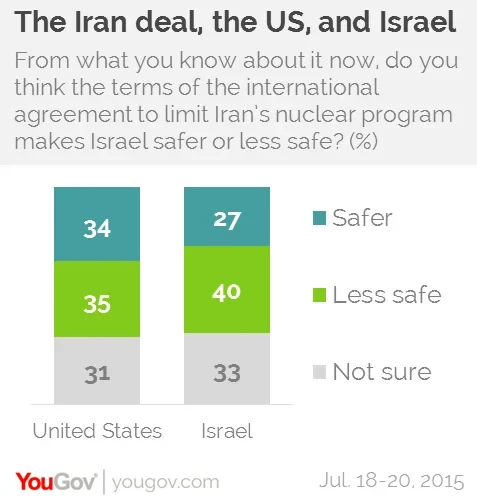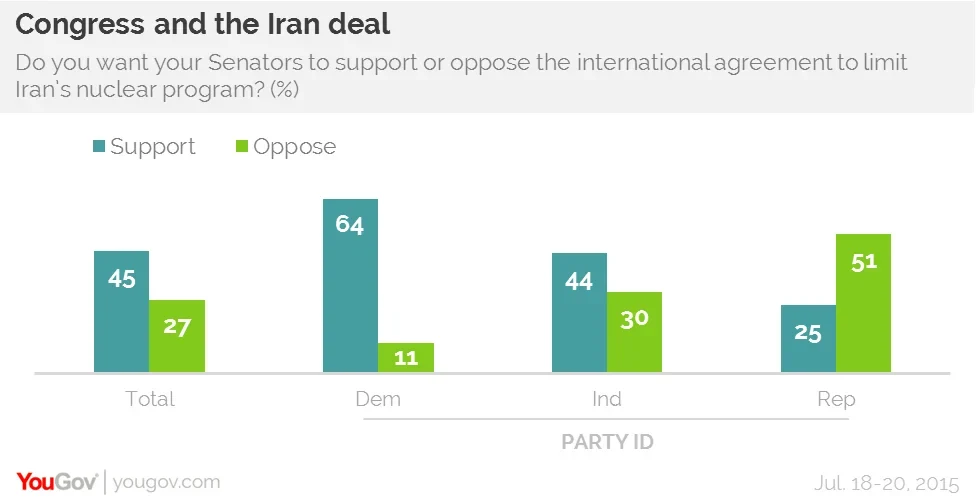Support for the Iran deal has increased and Americans tend to want their senators to back it. But few are convinced it will make America – or Israel – safer.
Americans don’t feel better about Iran now that a multi-nation agreement to limit that country’s development of nuclear weapons has been reached. But the latest Economist/YouGov Poll suggests that Americans are glad there is an agreement, even though they aren’t at all convinced that Iran will live up to its terms.
Americans are just as likely as they were a week ago, before the multi-national agreement limiting Iran’s nuclear ability, to believe Iran is a serious threat to the United States. One in three say it is an “immediate and very serious” threat today. Nearly half continue to view Iran as an enemy of the United States. Nearly two out of three now believe it is more important to stop Iran from developing a nuclear capacity, even if that meant military conflict, an increase since before the agreement was reached.
However, despite all their caveats, Americans favor negotiations by two to one. And as for the agreement that was reached last week, a majority say they support it, though that opinion is heavily influenced by partisanship.

In addition, many aren’t completely sold either way, and say they just “tend” to support or oppose the agreement. Support has increased from the 43% recorded in a YouGov Poll conducted immediately after the agreement was announced.
There is confusion about what an agreement with Iran means to the United States. Just as many believe the U.S. will be less safe because of this agreement as believe it will be safer.
However, there is a different feeling about the impact of the agreement with Iran on Israel: Americans are more likely to agree with Israel’s Prime Minister Benjamin Netanyahu that Israel with be less safe because of the agreement than to think the opposite.

The public also would choose to stop negotiating with Iran in order to maintain the U.S. relationship with Israel.
But while Israel is seen as an American ally, and most Americans think the U.S. should be concerned about the security of the state of Israel, that does not mean most trust Israel’s current Prime Minister, Benyamin Netanyahu. Since the invitation to address Congress earlier this year by Republican Speaker of the House John Boehner to Netanyahu, opinions about the Israeli leader have become quite partisan. That is still the case. Although the country as a whole is divided on Netanyahu (32% favorable, 30% unfavorable, with more than a third undecided), Democrats are negative and Republicans overwhelmingly positive. And President Obama retains the upper hand over Netanyahu when people are asked who they trust more on the Iran nuclear agreement, as he does over the Senate on questions about treaty negotiations in general.
The U.S. Senate, of course, along with the U.S. House, will get a chance to approve the agreement, possibly in September. Right now, at least, the public, including one in four Republicans and a plurality of independents, would urge their Senators to support it.

See the Economist/YouGov results
Economist/YouGov poll archives can be found here.









